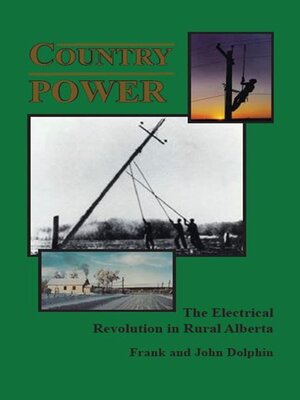
Sign up to save your library
With an OverDrive account, you can save your favorite libraries for at-a-glance information about availability. Find out more about OverDrive accounts.
Find this title in Libby, the library reading app by OverDrive.



Search for a digital library with this title
Title found at these libraries:
| Library Name | Distance |
|---|---|
| Loading... |
Country power was slow to develop in Alberta when compared with other provinces where public power was the force behind rural electrification.
It was by the initiative of farmers, in cooperation with the Government of Alberta and the three power companies, that Rural Electrification Associations (REAs) were developed to distribute electricity to rural customers. This was Alberta's chosen alternative to public power.
REAs were developed as cooperatives where membership was restricted to farmers. A signed agreement with the power company was required by the Alberta Government if the REA was to obtain loans under the Cooperative Act. This agreement retained the power company as the REA agent.
Those first REAs soon surpassed all expectations in causing the development of a distribution system that served power company customers, as well as their REA members. The system was second to none.
Later, it became evident that REAs would face just as big a challenge in the maintenance and the rebuilding of their systems, as they had faced in the original development of their REA dream. The REA financial structure, the "prepay" system, was in direct contrast to the practiced method of finance for business, the "pay as you use" system. This difference eventually led the REAs into a fight to survive.
This story eloquently presents how historical events affected the members of an REA, as well as the citizens of Alberta.







